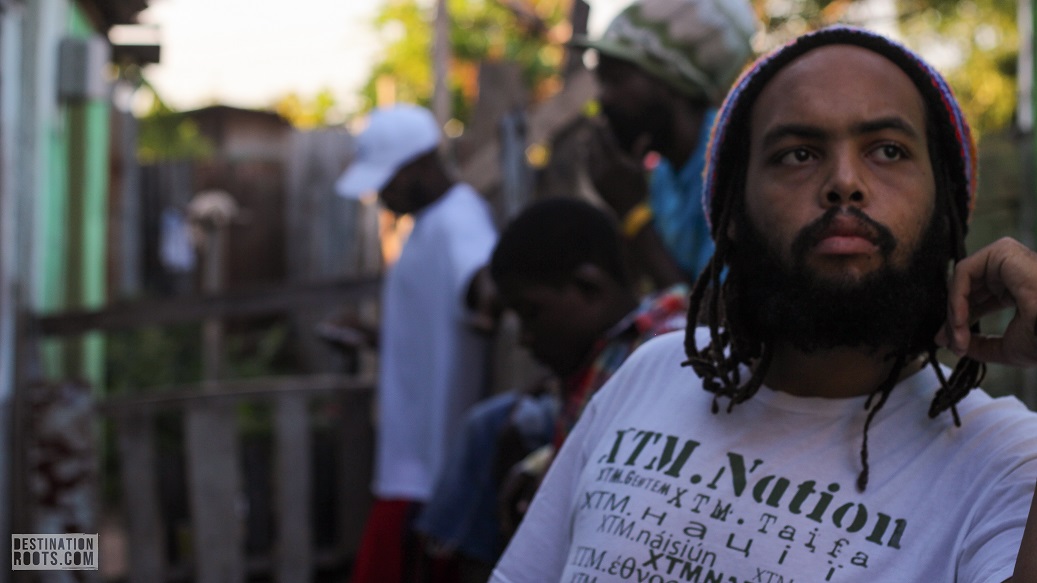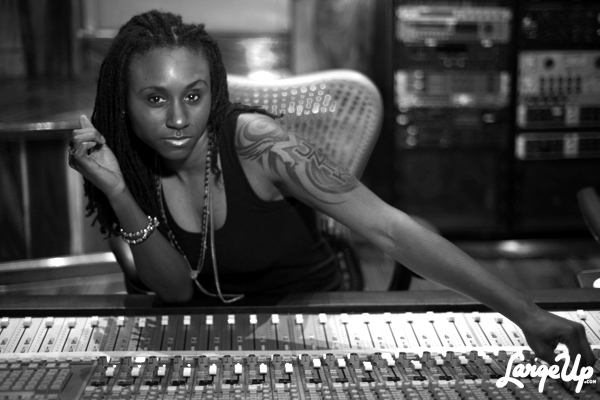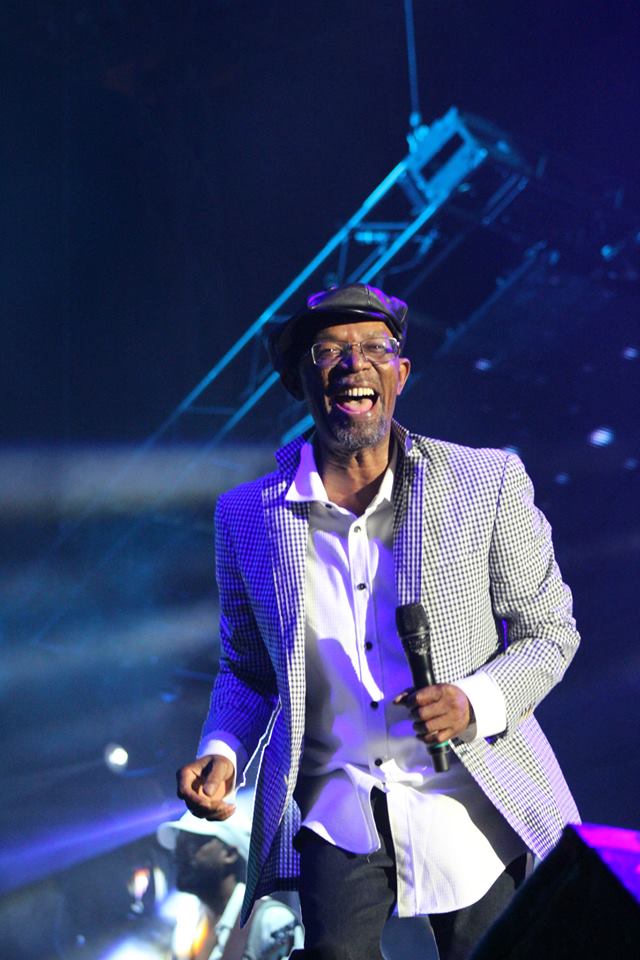They might not be in the limelight as much as the artistes,
but music producers play an important role in translating an artiste's vision
into a single track or complete compilation. The list of successful Jamaican
producers is extensive and includes creators like the Dub-master Lee "Scratch"
Perry, Sly & Robbie, Stephen "DI Genius" McGregor and Christopher Blackwell
who helped to forge the careers of Bob Marley, Grace Jones and U2 among others.
The first Jamaican recording studio is said to have opened
in 1951, with Ken Khouri starting the country's first record label – Federal
Records – three years later. From mento to dancehall, Jamaican music has
undoubtedly undergone significant development over the years and much of this
is owed to the producers.
Jamaicansmusic.com interviewed two second generation music
producers, namely Kareem Burrell and Nastassja Hammond, to learn their
perspectives on how the music has progressed and also the prospects of its
future.

XTM.Nation's Kareem Burrell is the son of one of the most
successful producers of the digital era and also stands out as a producer in
his own right. His father, Phillip "Fatis" Burrell, is one of reggae's most
prolific producers and worked with some of the biggest names in reggae music; including
Sizzla (whose career he also managed).
The young Burrell revealed that his father's work had a very
strong influence on him even before he decided to become a producer and he is
more than aware that he has some big shoes to fill.
"He managed to develop an immaculate sound with a team of
musicians – most of whom I work with today. This sound is respected and
recognized by reggae enthusiasts around the world so my production has high
expectations from people who have been following my father's label over the
years. I can't drop that standard," he stated.

![]()
![]()
![]() Burrell also acknowledged producers like Sly & Robbie,
Lee "Scratch" Perry, Dean Fraser, Earl "Chinna" Smith, Bobby Digital and renowned
American producer Timbaland among those that he looked up to growing up and
still do even today.
Burrell also acknowledged producers like Sly & Robbie,
Lee "Scratch" Perry, Dean Fraser, Earl "Chinna" Smith, Bobby Digital and renowned
American producer Timbaland among those that he looked up to growing up and
still do even today.
With his protégé, Jesse Royal, quickly garnering
international success, Burrell is eager to take his XTM.Nation label to the
same heights as his father's Xterminator Productions and even further. As a
second generation producer however Burrell pointed out that the music industry
is not what it used to be but is adamant that the future of the industry is
promising. That is, he says, as long as we respect our culture and preserve it
for the coming generations.
The Jamaican music industry is no doubt a male dominated
arena but this fact has not disheartened new female musicians from entering the
industry. She might not be the first but "The Wizard" is currently Jamaica's
only recognizable female producer. Her spellbinding beats and magical remixes make
her moniker an apt one but while The Wizard is proud of her success, her
sentiments are bitter-sweet.
"It's cool to be recognized for doing something you love but
honestly I wish there were more females involved. I think it would make for
more interesting and diverse music," she explained.
Like Burrell, The Wizard is also a second generation
musician and her father is none other than reggae luminary Beres Hammond. She
agrees with Burrell that Jamaican music has definitely undergone some changes
over the years but for the most part they are changes she can appreciate.

"There's a difference but that can be disputed based on the
technology that was available then versus the technology that is available now.
I also think more time was spent on crafting songs back then – there were fewer
distractions. The upside though is that we're exposed to more content now so
how we create has fewer limitations. Genres are now merging to make something
even more epic. Like Damian Marley and Skrillex teaming up for "Make it Bun
dem" – that's reggae meets EDM and rock. So I'm not nostalgic I really can
appreciate how the craft is evolving," she expressed.
Her music is notably different from the type of lovers-rock
music her father did but according to the young Hammond her father did play an
important role in influencing her musical palate.

"The difference in my music comes from the exposure to
different genres which oddly enough started with him. He (unwittingly)
introduced me to hip hop just by having a Leaders of the New School CD as he was
signed to Epic at the time. I was really young but it peaked my interest to see
what else was out there. I love Marvin Gaye, Stevie Wonder, Teddy P, Alton
Ellis - all the folks he admired but I also get a similar sense of contentment
listening to D'Angelo, The Beatles, Movado, Kartel, Fall out Boy and Florence
and the Machine," she said.
Having already worked with a diverse list of artistes
including her father, Nelly Furtado, Kat Dahlia, Michael Franti, Nyanda, Jesse
Royal and Tifa (just to name a few), The Wizard is hoping to eventually add artistes
like Busy Signal, Damian "Jr. Gong" Marley, Mumford and Sons, Bruno Mars, Panic
at The Disco and Kanye West to her growing roster.
The Wizard is also optimistic about the future of Jamaican
music, saying: "I believe a lot of great things are in store for Jamaican music
and musicians. Peep what Tessanne is doing - simply amazing; Major Lazer is playing
our music worldwide, giving our music a platform for the masses to appreciate.
We just have to own our uniqueness and not wait for other people to appreciate
it before we do. If we create an environment to motivate and allow great minds
the freedom to truly be creative, "sky is the limit" would be an
understatement. Likkle but wi tallawah - believe that."














 less
less
 more
more